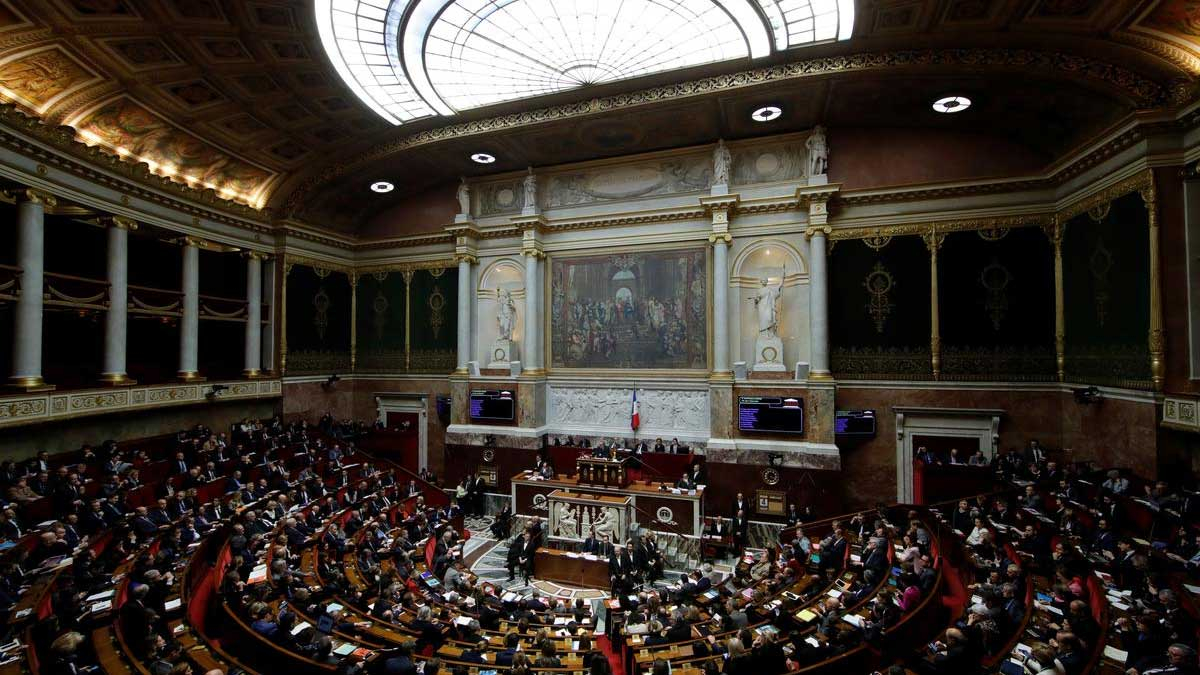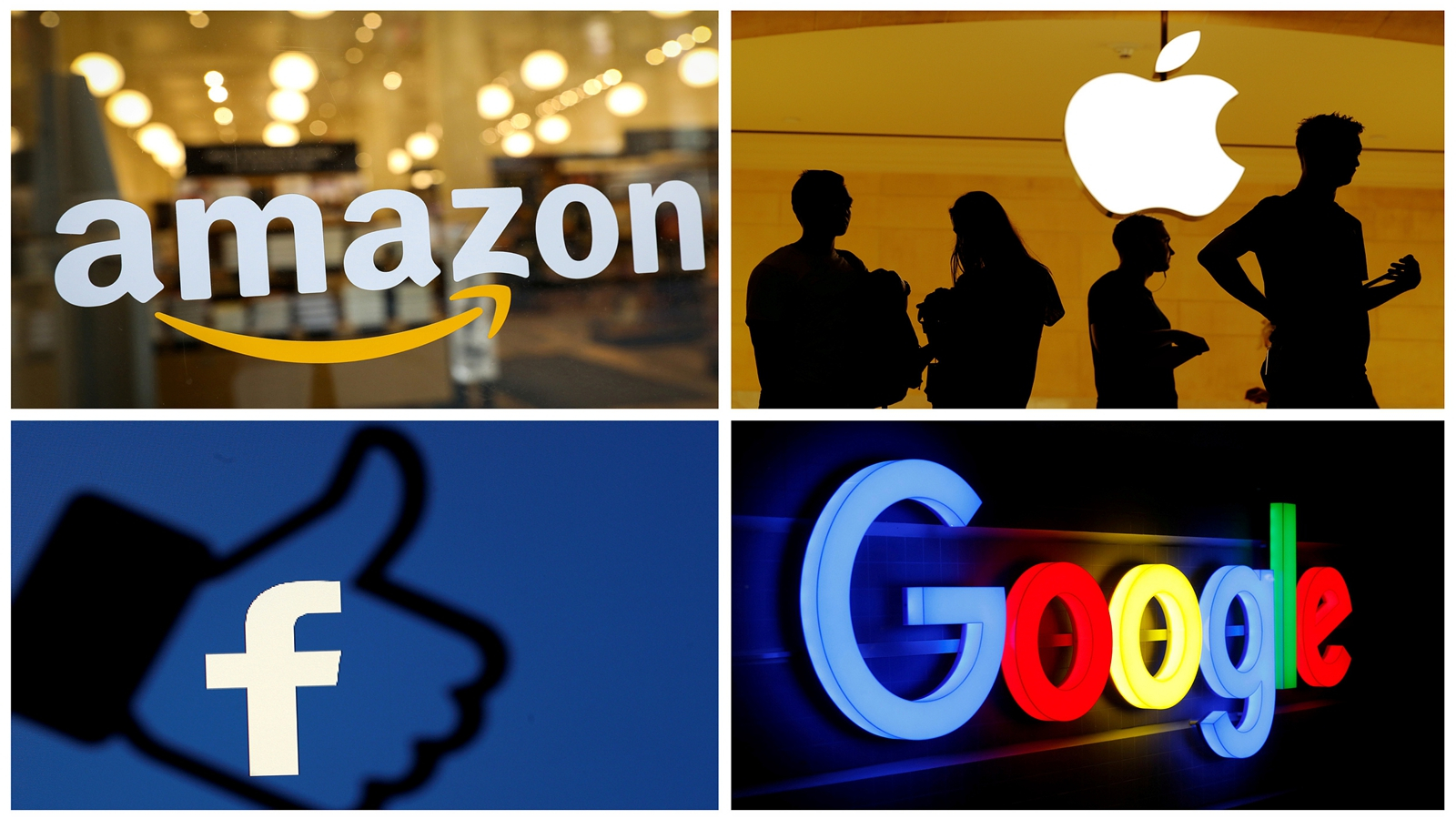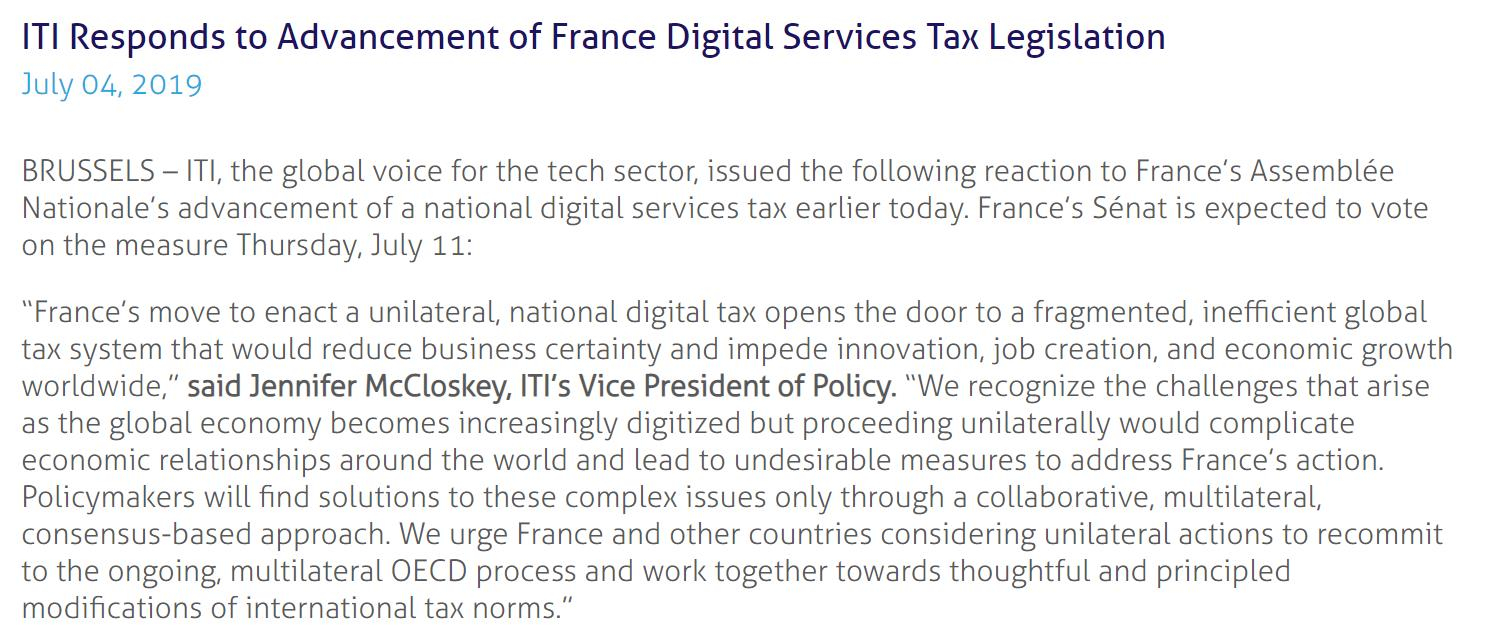
The French are getting tough on taxing internet giants. Though their attempt, along with Germany and Britain, to create a unified digital tax in the EU has hit a snag, they still went ahead and adopted the tax at home.
On Thursday, the French parliament passed the final version of the digital tax bill with support from the opposition-controlled upper house. Reuters said this showed the issue enjoys "transpartisan support" in the country.

A general view shows the French National Assembly in session in Paris, France, December 4, 2018. /Reuters Photo
The tax can be applied to more than 30 internet giants around the world, with U.S. companies being the most impacted.
The so-called GAFA companies (Google, Amazon, Facebook and Apple) are all targets of the tax.

VCG Photo

The tax on digital giants is also called GAFA tax which is an acronym for Google, Apple, Facebook and Amazon. /VCG Photo
To be exact, a three percent tax will be applied to companies that operate in France with at least 750 million euros (roughly 800 million U.S. dollars) of yearly revenue from digital business.
French Finance Minister Bruno Le Maire said in March that the government could collect more than 500 million U.S. dollars every year.

French Economy Minister Bruno Le Maire. /VCG Photo
The first wave of tax counts from the beginning of 2019, meaning the revenues earned months before the passing of the bill will also be factored in.
Digital taxation can be a way to prevent internet giants from exploiting tax policy loopholes to gain more income. EU countries like Denmark, Finland, Ireland and Sweden are using lower tax rates to attract the companies to transfer profits.
U.S. reactions
The tax is under investigation by the Trump administration, which may lead to China-style tariffs on France.
The "Section 301" investigation is an old action reactivated by the Trump government in 2017 to target Chinese innovation efforts. Now it's also being applied to the French tax to probe any unfair trade practices.
"The United States is very concerned that the digital services tax which is expected to pass the French Senate tomorrow unfairly targets American companies," U.S. Trade Representative Robert Lighthizer said in a statement announcing the investigation.
The companies are also going against the tax. The Information Technology Industry Council (ITI), which claim to be "the global voice of the tech sector," issued two statements in a week over the tax.

ITI's response to the French digital tax. /Screenshot from ITI
ITI's Vice President of Policy Jennifer McCloskey said the tax "opens the door to a fragmented, inefficient global tax system that would reduce business certainty and impede innovation, job creation, and economic growth worldwide," and suggested France "find solutions only through a collaborative, multilateral, consensus-based approach."
McCloskey also voiced support for the Section 301 investigation.
(Liu Wenbo also made contribution to the story.)

Copyright © 2018 CGTN. Beijing ICP prepared NO.16065310-3
Copyright © 2018 CGTN. Beijing ICP prepared NO.16065310-3